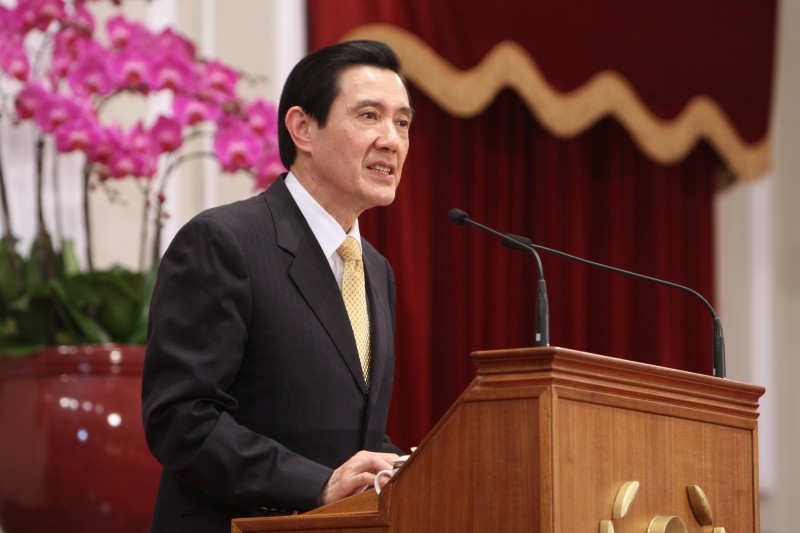News & activities
 News releases
News releases
At a February 9 press conference held at the Presidential Office, President Ma Ying-jeou explained to the public the reasoning underlying his administration's policies concerning negotiation of an economic cooperation framework agreement (ECFA) with mainland China. The pact will include measures focusing on tariff reductions and exemptions as well as on legal protection of investments and intellectual property rights, while the overall aim, he stressed, is to help Taiwan's people do business and boost Taiwan's competitiveness.
President Ma reiterated the major reason for Taiwan to sign an economic agreement with mainland China: Taiwan's competitiveness will be adversely affected by the free trade between ASEAN and the mainland that began on January 1, 2010 in accordance with their Framework Agreement on Comprehensive Economic Cooperation. A cross-strait economic agreement, he said, will stimulate foreign direct investment in Taiwan and thereby create more job opportunities for Taiwanese.
As the President further explained, a cross-strait economic agreement will encompass three major areas of concern. First is the matter of tariff reductions and exemptions that will benefit Taiwan's high-volume exports to the mainland. Second is the need for investment protection, requiring the negotiation of a comprehensive set of measures that will enable Taiwanese businesses to safeguard their interests whenever they encounter unfair or unjust treatment in mainland China. Third is the protection of Taiwanese manufacturers' intellectual property rights through arrangements whereby they can avoid being victimized by pirating.
Addressing concerns that a cross-strait economic agreement might hurt certain domestic industries, President Ma stated that the government has formulated three types of remedial assistance programs. "Rejuvenation" assistance is aimed at helping industries that are endangered but have not yet been hurt. "Systematic adjustment" assistance is designed to help industries that have begun to suffer, though not yet heavily, to improve their operations. In the case of industries experiencing severe setbacks, a "damage relief" program administered by the Ministry of Economic Affairs will provide assistance amounting to NT$95 billion (about US$3 billion) over a 10-year period.
In response to widespread concern as to whether Taiwan will open up to mainland labor and agricultural imports, the President underscored the fact that agreements under the World Trade Organization framework do not address movements of laborers, for which reason this will not be a subject of cross-strait negotiations. As for agricultural products, he pointed out that whereas Taiwan has over the years lifted restrictions on importation of 1,415 types of mainland products, his administration has not lifted restrictions on even a single additional category of agricultural goods.
Responding to opposition parties' suspicions that mainland China harbors political designs and schemes to use economic agreements to make Taiwan more dependent on it, President Ma observed that since the mainland became factory to the world, its trade with countries all over the globe has ballooned. In this light, he said, the surging growth of Taiwan's trade with the mainland and investment there is only normal. Pointing out that Taiwan has always hoped to ink free trade agreements with other countries, the President further opined that once a cross-strait economic agreement has been finalized, resistance to and pressure against signing such pacts will lessen, while incentives to do so will increase.
It is his fond hope, said the President, that Taiwan can conclude an economic agreement with mainland China that will strengthen Taiwan, facilitate cross-strait integration, and enable Taiwanese enterprises to extend their reach worldwide, thereby making the nation increasingly open and competitive.



